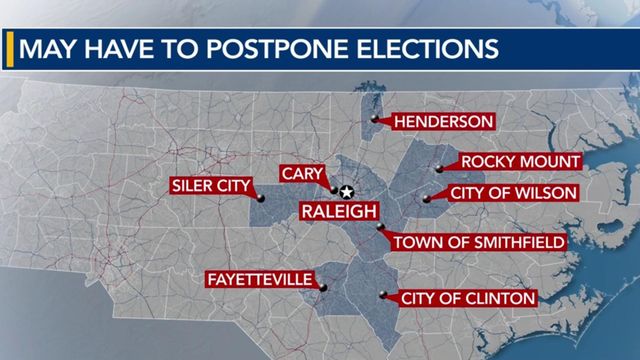Delayed census data prompting effort to move elections in Raleigh, other NC cities from 2021 to 2022
Delays with 2020 census data has prompted state lawmakers to allow dozens of cities and towns across North Carolina to push local elections set for this fall back to next spring.
Posted — Updated"It’s all so they can stay in power," said Stef Mendell, a former council member.
Mendell said the public should have a say in when the next elections are set.
"I think it’s pretty terrible. I think it’s awful for democracy," she said of delaying Raleigh's elections for a year. "It’s very self-serving for this council, but I don’t think it’s good for Raleigh residents."
The U.S. Census Bureau has said detailed population breakdowns from the 2020 census won't be available until September. Some cities need that data to redraw council districts to reflect changes in their population since 2010, and the delayed data wouldn't give them time to do that and allow candidates to file and campaign before fall elections.
"Since you have to live in that district to run and you have to live in that district to vote for those individuals, that does require a review after the census data comes in to see if they need to go back and redraw their lines," said Gary Sims, Wake County's elections director.
The state Senate still needs to sign off on the proposal before it goes to Gov. Roy Cooper.
In addition to Raleigh, the bill affects the following cities and towns: Ahoskie, Cary, Charlotte, Clinton, Edenton, Elizabeth City, Enfield, Erwin, Fayetteville, Greensboro, Greenville, Henderson, Hickory, Jacksonville, Kings Mountain, Laurinburg, Lexington, Long View, Lumberton, Mooresville, Mount Olive, New Bern, Plymouth, Princeville, Roanoke Rapids, Rocky Mount, Sanford, Siler City, Smithfield, St. Pauls, Statesville, Tarboro, Whiteville and Wilson.
"Circumstances have put us in this position. This was not an easy decision, trust me on that," Baldwin said.
Raleigh needs more time to prepare new council districts because it's grown so much since the last census, she said.
"While this might work for smaller towns, it doesn’t give us enough time to redraw the districts, look at all the data, get public input to meet that March deadline," she said.
Meanwhile, cities and towns where council members don't run in single-member districts, such as Durham and most Wake County towns, can still hold their elections this fall as scheduled.
"We need to make sure everybody is aware of what’s going on because we don’t want anybody expecting to be voting this October but come to find out it’s next year," Sims said. "In Wake County, we do have 12 other municipalities [where] it’s business as usual – you’re going to have an election in November."
Cary officials said they don't want to delay their elections, either, saying they believe they can redraw districts without the census data. They're looking possibly seeking an exemption from state lawmakers.
Related Topics
• Credits
Copyright 2024 by Capitol Broadcasting Company. All rights reserved. This material may not be published, broadcast, rewritten or redistributed.






